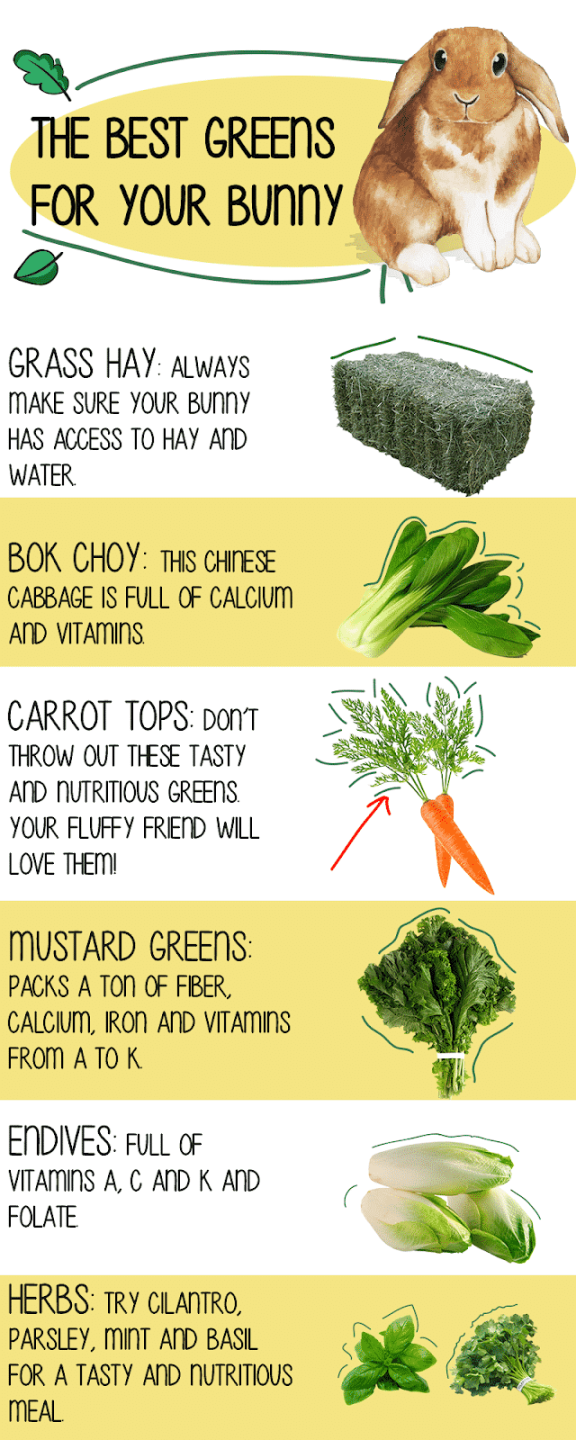Can Rabbits Have Mustard Greens?
When it comes to feeding our pet rabbits, it is essential to provide them with a well-balanced and nutritious diet. While hay is the primary component of their diet, it is important to offer a variety of fresh vegetables to ensure they receive all the necessary vitamins and minerals. One popular vegetable that rabbit owners often wonder about is mustard greens. In this article, we will explore whether rabbits can have mustard greens and discuss their nutritional benefits and potential risks.

Nutritional Benefits of Mustard Greens
Mustard greens are leafy green vegetables that belong to the Brassica family, which also includes vegetables like kale, cabbage, and broccoli. These greens are rich in various essential nutrients that can contribute to the overall health and well-being of your pet rabbit.
Here are some of the nutritional benefits of mustard greens:
- Fiber: Mustard greens are high in fiber, which is crucial for maintaining a healthy digestive system in rabbits. Fiber helps in preventing gastrointestinal issues like constipation and promotes regular bowel movements.
- Vitamin C: These greens are a good source of vitamin C, an essential nutrient that plays a vital role in strengthening the immune system. A sufficient intake of vitamin C can help rabbits fight off illnesses and stay healthy.
- Vitamin A: Mustard greens contain vitamin A, which is important for maintaining good eyesight and promoting overall eye health in rabbits.
- Calcium: These greens are also a decent source of calcium, which is necessary for maintaining healthy bones and teeth in rabbits.
- Antioxidants: Mustard greens contain antioxidants that help protect the body’s cells from damage caused by free radicals. These antioxidants can contribute to the overall health and longevity of your pet rabbit.
Potential Risks of Mustard Greens
While mustard greens offer several nutritional benefits, it is important to be aware of the potential risks associated with feeding them to rabbits.
Here are some potential risks:
- Oxalates: Mustard greens, like many leafy greens, contain oxalates. High levels of oxalates can interfere with calcium absorption, leading to the formation of calcium oxalate stones in rabbits’ urinary tract. This can potentially result in urinary tract issues and require veterinary intervention. However, feeding a variety of greens in moderation can help minimize the risk of oxalate-related problems.
Feeding Mustard Greens to Rabbits
If you decide to introduce mustard greens into your rabbit’s diet, it is essential to do so gradually and in moderation. It is recommended to offer a small amount of mustard greens initially and observe your rabbit’s reaction to ensure it agrees with its digestive system.
Here are some tips for safely feeding mustard greens to rabbits:
- Wash Thoroughly: Always wash mustard greens thoroughly before offering them to your rabbit to remove any dirt, pesticides, or other contaminants.
- Introduce Gradually: Start by offering a small portion of mustard greens to your rabbit and observe how they tolerate it. If there are no adverse reactions, you can gradually increase the amount over time.
- Balance with Other Vegetables: Mustard greens should not be the only vegetable in your rabbit’s diet. It is crucial to offer a variety of vegetables to ensure a well-rounded and balanced diet. Rotate different greens and vegetables to provide a mix of nutrients.
- Avoid Overfeeding: While mustard greens are nutritious, they should be fed in moderation. Overfeeding any vegetable, including mustard greens, can lead to digestive upset and other health issues. Always consider portion sizes and consult your veterinarian for specific feeding guidelines.
FAQs
1. Can rabbits eat mustard greens every day?
It is not recommended to feed mustard greens to rabbits every day. While they offer nutritional benefits, a varied diet is essential for rabbits’ overall health. Rotate different greens and vegetables to provide a diverse range of nutrients.
2. How much mustard greens should I feed my rabbit?
Mustard greens should be fed in moderation. Start with a small portion and gradually increase it over time. It is important to consider portion sizes and consult with your veterinarian for specific feeding guidelines for your individual rabbit.
3. Are mustard greens safe for baby rabbits?
It is best to wait until baby rabbits have reached the appropriate age before introducing mustard greens or any new food. Young rabbits have delicate digestive systems, and sudden dietary changes can cause digestive upset. Consult with your veterinarian to determine the appropriate time to introduce mustard greens into their diet.
4. Can rabbits with urinary tract issues eat mustard greens?
Rabbits with urinary tract issues should avoid high-oxalate foods like mustard greens. The high oxalate content can contribute to the formation of calcium oxalate stones, potentially worsening the condition. Consult with your veterinarian for a suitable diet plan for rabbits with urinary tract issues.
Related Articles…
Copyright Notice:
The images displayed here are sourced from the internet, with copyrights held by respective owners. For removal of any copyrighted image, please email us.